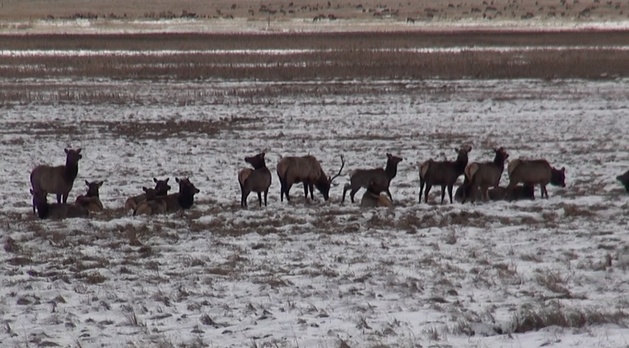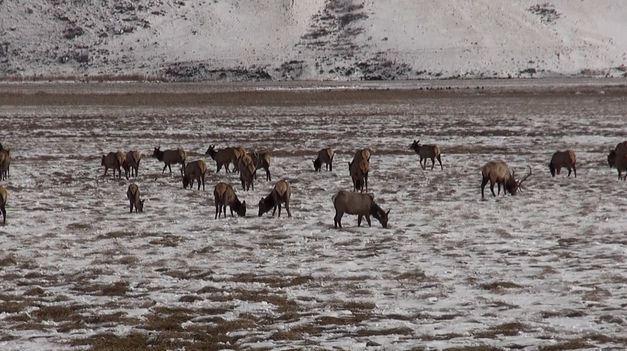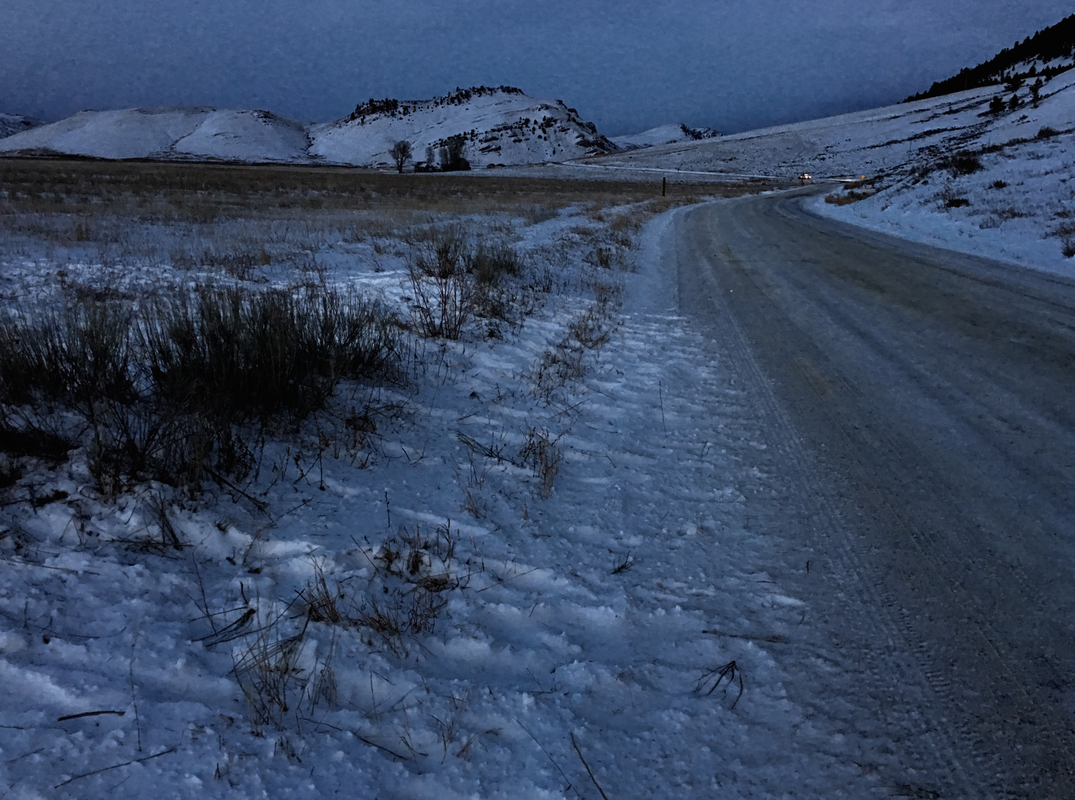Arriving in Jackson in December, 2015, I learned that animals had begun coming down from the nearby mountains for the winter. Along the highway, I could see hundreds of elk near the fence:
I was staying near the refuge, and late in the afternoon of December18 I decided to take a walk along a road on the eastern side of the refuge. As night fell, I navigated by moonlight and the lights of an occasional passing car or truck.
About a mile into the refuge, I decided it was time to return home. Up in the hills on the east side of the road I could hear coyotes and an indistinct rustling—a sound that I can only describe as a restlessness in the forest. Then a truck came past and halted about 50 yards ahead. In its lights I could see one elk, then another two or three, than dozens—a veritable river of elk flowing down from the mountainside, across the road, and into the refuge. The truck slowly moved on through the herd, and several thoughts flooded my mind?
-- Would I be able to walk through the flowing elk?
-- Should I wait for another vehicle and hope for a ride?
But at that moment the herd split: those across the road continued into the refuge. The others, now seeing me, vanished back up the mountain. I had walked on only a few yards when I saw a moose directly in front of me beside the road. My mind raced through a succession of quick thoughts:
-- In Alaska more people are killed every year by moose than by grizzlies.
-- If I was in danger, I might as well continue walking toward the moose as flee in another direction.
Somehow I was not particularly worried, but I was deeply interested in what would happen next.
A few more steps forward and I had the answer: my "moose" was simply a park sign beside the road!
Before you laugh at my mistake, consider this. It was dark—very dark, as evidenced by a photo I took of the sign:
(You know you want to!)
If you enjoyed this article you may enjoy these other articles about Parks and Mother Nature:
• New York's Central Park: A Wilderness?
• The Japanese Garden at the Hotel New Otani -- an Exercise in "Parkology"





 RSS Feed
RSS Feed